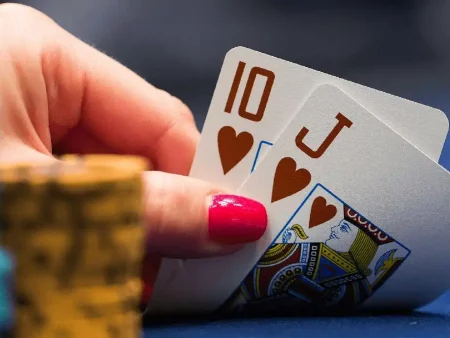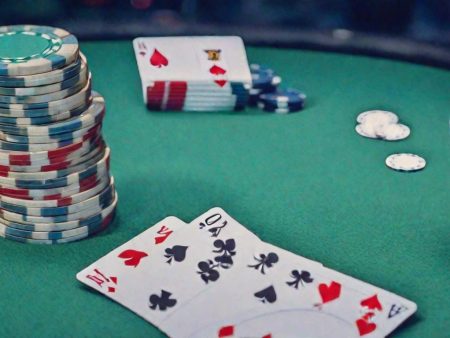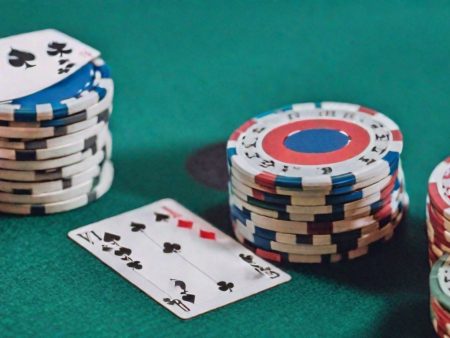In poker, position is one of the most crucial elements of strategy, determining where you sit in relation to the dealer. It’s not just about comfort; it’s a key factor influencing your decisions and actions during the game. The more you understand how position impacts your strategy, the more successful you’ll be. Every seat at the table has its own strengths and weaknesses. Let’s take a look at the different positions in poker and how they affect your gameplay.
Dealer (Button)
When it comes to the most advantageous positions at the table, the dealer position stands out with many benefits. It’s important to understand what makes this position so attractive.
Advantages of the Dealer:
- Last to act. One of the key benefits of the dealer position is the ability to act last. This gives you the opportunity to see how other players behave and make more informed decisions based on their actions.
- More time to think. As the last player to act, you have extra time to assess the situation. This helps you avoid rushing into decisions and carefully evaluate your hand.
- Opportunity for aggressive play. By having a complete picture of how others are acting, you can use bluffing more aggressively, raising bets based on your opponents’ weak positions.
Disadvantages of the Dealer:
- Blinds. Every hand starts with you having to post the small or big blind. This is a disadvantage because you’re forced to make mandatory bets, even with weak hands.
- Lack of information at the start. While you see the actions of other players, at the beginning of the round you still don’t have a full picture of their hands, so you’ll need to rely more on intuition and attention.
Read also: M-ratio in poker – how to calculate and use it.
Early Position
Playing from early position essentially means starting the hand with limited options. It’s one of the least favorable positions because you have to make decisions without knowing what others will do.
Advantages of Early Position:
- Easier to bluff. Players in early position are often perceived as more conservative. This opens up the possibility for successful bluffs because your bets are likely to be taken more seriously.
- Lower risk. Since you’re playing only strong hands, you reduce the risk of losing chips.
Disadvantages of Early Position:
- Limited information. You don’t know what players behind you are going to do, so you have to be very cautious when deciding how to play your hand.
- Fewer opportunities to win. Because you’re only playing premium hands, you’re involved in fewer pots, which limits your opportunities to win.
Middle Position
Middle position is often considered the “sweet spot” — you get more information than in early position, but not as much as in late position.
Advantages of Middle Position:
- Better view of others’ actions. You’ve already seen what the players in early position have done, which helps you make more confident decisions.
- Flexibility in hand selection. From middle position, you can play not only premium hands but also medium-strength hands, and sometimes even weaker hands, adding more variety to your strategy.
- Exploiting early position weaknesses. Knowing what players in early position have done allows you to exploit their weaknesses and make more strategic decisions.
Disadvantages of Middle Position:
- Dependence on late position players. Players behind you can raise the pot aggressively, complicating your decisions.
- Need for caution. While you have more information than in early position, you still need to be careful when choosing which hands to play, as your position is still not ideal.
Read also: Hijack in poker – definition and position characteristics.
Late Position
Late position is one of the most favorable spots at the table because you get to see how most of the players act before making your move. This provides a significant advantage.
Advantages of Late Position:
- Full information. You can see what most players have done before you act, allowing you to make more informed decisions.
- Opportunity for bluffing. Understanding how other players have acted enables you to use bluffing more confidently and take advantage of weak positions.
- Control of the pace. From late position, you can dictate the pace of the game, raising or lowering bets, and deciding when to enter a pot.
Disadvantages of Late Position:
- Risks from high bets. Players in earlier positions may raise the pot, requiring you to carefully manage your bets and bankroll.
- Need for strong hands. If you have weak cards, all the advantages of late position disappear, and it’s better to play conservatively.
Small and Big Blinds
The small and big blinds are mandatory bets posted by players sitting to the left of the dealer. While they’re not technically “positions” in the traditional sense, their role in the game is critical.
Small Blind: The first mandatory bet, usually half the minimum bet for the hand.
Big Blind: The second mandatory bet, typically equal to the minimum bet for the hand.
Although players in the blinds don’t have the luxury of choosing when and how to bet, their role at the start of the hand is crucial in shaping the pot and the rest of the strategy. Positions at the poker table have a massive impact on your strategy. Each seat has its own strengths and weaknesses. Understanding how to use your position to your advantage helps you craft a more effective and intelligent approach to the game. No matter where you sit, it’s important to realize that your position not only affects the flow of the game but also your chances of success. Want to know more about how to win at casinos? Read secrets of successful casino gaming – top players share their insights!
FAQ: Poker positions: types and their impact on strategy
What are the different types of poker positions?
Poker positions are typically categorized as early position (EP), middle position (MP), late position (LP), and the blinds.
Each position impacts a player's strategy due to the order of action in the betting rounds.
Why is position important in poker?
Position determines when you act during a betting round, which influences the amount of information you have.
Players in later positions have a strategic advantage, as they can react to opponents' actions.
What is early position (EP) in poker?
Early position includes seats like under the gun (UTG) and the next few players.
These positions require tighter hand ranges because players act first without knowing opponents' actions.
What is middle position (MP) in poker?
Middle position offers a balance between early and late positions.
Players here can play slightly wider hand ranges but still need to be cautious.
What is late position (LP) in poker?
Late position includes the cutoff and the button, which are the most advantageous seats.
These positions allow for the widest range of hands and greater opportunities to bluff or steal blinds.
How do the blinds affect strategy?
The small blind (SB) and big blind (BB) are forced bets that act last preflop but first postflop.
Defending the blinds effectively is crucial to minimizing losses, especially against aggressive players.
How can players improve their positional awareness?
To improve, players should study how position influences ranges, betting strategies, and postflop decisions.
Practicing positional play in different scenarios will build a solid understanding of its importance.






